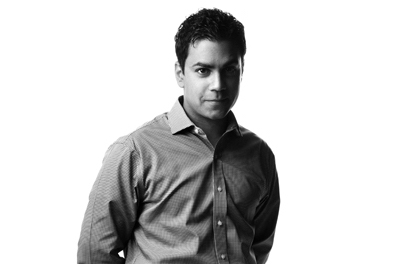Age: 35
Job Title: Health Professional
Why He’s Top 40: He’s leading the field in health-care problem solving, from vaccines to addiction treatment.
Key To Success: “I’m driven by the fact that our decisions have an impact on other people’s quality of life, even though we’ve never met before.”
Three years ago, during the H1N1 pandemic scare, Hakique Virani faced a daunting challenge. He was the only medical officer assigned by the provincial government to inoculate First Nations people throughout Wild Rose Country, and he had to administer those vaccines with a skeleton staff and limited resources.
Rather than merely rolling the medi-van into each community and waiting for patients, he sought advice from elders and bandleaders on everything from aboriginal protocols to tribal customs.
He earned the respect of leaders, who helped mobilize residents. Individuals volunteered to organize lineups and track down those left behind. Roughly 75 per cent of First Nations people received the vaccines, triple the provincial average.
“I had to approach the community the same way I approach an individual with unique needs,” says Virani, whose efforts earned him the highest level of recognition from the Health Quality Council of Alberta and commendation from the federal Minister of Health. He’s equally engaged in his work at the Metro City clinic, an inner-city drug addiction treatment facility he founded in 2008 that’s treated hundreds of people and removed them from dangerous lifestyles. Married with two young children, Virani also finds time to teach at the University of Alberta Hospital and volunteer for a number of causes, including Alberta’s Coalition on Prescription Drug Misuse.
His passion for the profession developed long ago. In his early 20s, while covering the health beat for Calgary television station CFCN, he was impressed by the positive impact physicians had on their patients. In 1998, he enrolled in med school and, nine years later, he was appointed a post in the First Nations and Inuit Health Branch of Health Canada, where he continues to serve.
For all his dedication, Virani admits he’s often impatient. He has to be. “Unfortunately, we in the public health profession tend to philosophize a lot and analyze things when we need to find creative solutions to problems. Usually you don’t have time to navel gaze.”
